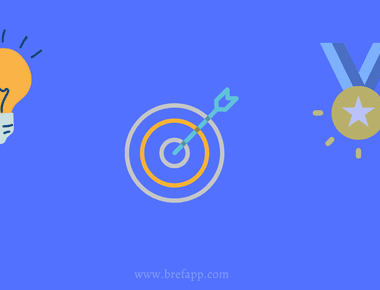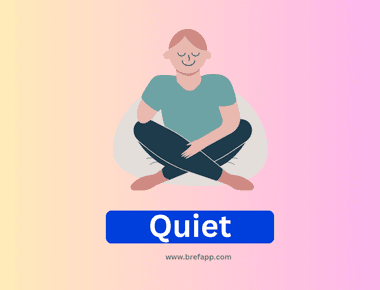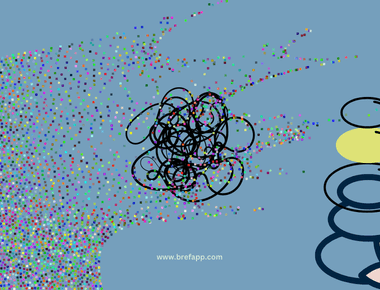
Flow - The Psychology of Optimal Experience - Book summary

Flow: The Psychology of Optimal Experience is a book written by Mihaly Csikszentmihalyi, a psychologist who has spent years studying the concept of Flow. In the book, Csikszentmihalyi defines flow as a state of complete absorption in an activity, where one’s skills and abilities match the level of challenge at hand. Through research and interviews with individuals who have experienced Flow, he explores the benefits of this state, such as increased well-being, creativity, and learning. Csikszentmihalyi also outlines the conditions necessary for flow to occur and provides practical strategies for achieving flow in everyday life.
The topic of Flow is important because it offers insights into how individuals can find meaning and fulfillment in their lives. By understanding the conditions necessary for Flow to occur and the benefits of experiencing it, individuals can work towards creating a life that is both challenging and rewarding.
“ “Flow: The Psychology of Optimal Experience” provides a valuable perspective on how to achieve a state of happiness and fulfillment in life.”
What is flow?
Flow is a state of complete immersion and absorption in a task, where an individual is fully engaged and involved in an activity to the point where they lose track of time and become completely focused on the present moment. It is a highly enjoyable and rewarding experience, characterized by a sense of effortless control, focused concentration, and a deep sense of satisfaction.
Characteristics of Flow:
- Intense and focused concentration on the present moment
- Merging of action and awareness
- Loss of self-consciousness and self-awareness
- A sense of control and confidence in one’s abilities
- A distortion of time, where time seems to pass quickly or slowly
- Immediate feedback on performance
- Deep sense of satisfaction and enjoyment in the activity
Examples of flow experiences:
- A musician becoming completely absorbed in playing a piece of music
- An athlete experiences a “zone” state during a competition
- A writer losing track of time while engrossed in writing
- A programmer becoming fully immersed in coding
- A painter losing themselves in the act of painting
“ Flow is a highly desirable state that allows individuals to fully engage and enjoy their activities, leading to increased motivation, creativity, and productivity.”
The benefits of flow
Experiencing Flow has numerous positive effects on an individual’s well-being, performance, creativity, and learning. Some of the key benefits of flow are:
- Positive effects on well-being: Flow experiences have been found to be associated with increased well-being and happiness. When in flow, individuals experience a deep sense of satisfaction and enjoyment, which can lead to a more positive outlook on life.
- Increased performance and creativity: When in Flow, individuals are fully focused on the task at hand, leading to increased performance and productivity. In addition, flow experiences have been found to be associated with increased creativity, as individuals are more open to new ideas and approaches.
- Enhanced learning and growth: Flow experiences can also lead to enhanced learning and growth. By fully immersing themselves in an activity, individuals are more likely to acquire new skills and knowledge, leading to personal growth and development.
Experiencing Flow can have a positive impact on an individual’s overall well-being and lead to increased performance, creativity, and learning.
The Conditions for Flow
While flow can occur spontaneously, there are specific conditions that need to be met in order to increase the likelihood of experiencing it. The four key conditions for Flow are:
- Clear goals and feedback: In order to experience Flow, an individual needs to have clear goals and receive immediate feedback on their performance. This allows for a sense of progress and achievement, which can lead to a deep sense of satisfaction.
- Balance between skill level and challenge: Flow occurs when an individual’s level of skill matches the level of challenge presented by the task. If the task is too easy, the individual may become bored, while if it is too difficult, they may become anxious. A balance between the two is necessary for Flow to occur.
- Focused attention: Flow requires complete focus and attention on the task at hand. Any distractions or interruptions can disrupt the flow state, making it difficult to fully immerse oneself in the activity.
- Sense of control: To experience flow, individuals need to feel a sense of control over the task. This can involve a sense of autonomy, where the individual has control over the direction of the task, or a sense of mastery, where the individual feels confident in their abilities to complete the task.
By creating conditions that meet these four key factors, individuals can increase their likelihood of experiencing flow in their daily lives.
How to achieve flow
While flow can occur spontaneously, individuals can also take steps to intentionally create the conditions necessary for it to occur. Here are some strategies for finding flow in everyday life:
- Identify activities that you enjoy and are passionate about: Flow is more likely to occur when individuals engage in activities that they enjoy and are passionate about.
- Set clear goals and track progress: By setting clear goals and tracking progress, individuals can create a sense of direction and purpose, which can increase the likelihood of experiencing Flow.
- Eliminate distractions: Distractions can disrupt the Flow state, so it’s important to eliminate any distractions that may interfere with complete focus and attention.
- Increase the level of challenge: To achieve Flow, individuals need to be challenged, so it’s important to increase the level of challenge as their skills improve.
- Practice mindfulness: Mindfulness can help individuals stay focused on the present moment, which is essential for experiencing flow.
- Embrace failure: Failure is a natural part of the learning process, and individuals should embrace it as an opportunity to learn and grow, rather than as a setback.
- Seek feedback: Feedback is essential for achieving Flow, as it helps individuals adjust their approach and make progress towards their goals.
By intentionally creating optimal conditions for flow and overcoming obstacles to it, individuals can increase their likelihood of experiencing this highly rewarding state in their daily lives.
Flow in different domains
Flow can occur in a wide range of activities and domains. Here are some examples of how flow can manifest in different areas of life:
- Flow in work and career: Flow can occur in any job or career where there is a balance between skill level and challenge, clear goals, and a sense of control over the task. When in flow at work, individuals experience a deep sense of satisfaction and are more likely to be productive and engaged.
- Flow in relationships and social interactions: Flow can also occur in social interactions, such as during a stimulating conversation or engaging activity with friends or family. When in Flow in social settings, individuals experience a deep sense of connection and enjoyment.
- Flow in leisure activities and hobbies: Flow is often experienced during leisure activities and hobbies, such as playing sports, reading, or engaging in creative pursuits. When in Flow during these activities, individuals experience a deep sense of enjoyment and often lose track of time.
“ Flow can occur in a wide range of activities and domains, and can have a positive impact on an individual’s well-being, performance, and overall enjoyment of life.”
Criticisms and Limitations of Flow Theory
While flow theory has received widespread attention and acclaim, there are also criticisms and potential limitations to the concept. Here are some of the main criticisms and limitations of Flow theory:
- Critiques of Flow as a concept: Some critics have argued that the concept of Flow is too subjective and difficult to measure objectively. Others have suggested that flow may not be a distinct psychological state, but rather a combination of other well-established states such as engagement or absorption.
- Potential limitations of Flow theory: While Flow theory has been found to be a useful framework for understanding positive experiences, it may have limitations in certain contexts. For example, it may not be applicable in situations where the task is too difficult or too repetitive to achieve flow, or in situations where individuals are experiencing high levels of stress or anxiety.
- Cultural and individual differences: Another potential limitation of flow theory is that it may not apply equally across all cultures and individuals. For example, some cultures may prioritize group goals over individual achievement, which may affect the conditions necessary for experiencing flow. Additionally, individual differences in personality and motivation may also affect the likelihood of experiencing flow.
Despite these critiques and limitations, flow theory remains a valuable framework for understanding positive experiences and well-being and performance in a variety of enhancing contexts.
FinalThoughts
Flow theory proposes that individuals can achieve a state of optimal experience by engaging in activities that balance their skill level with the challenge presented, provide clear goals and feedback, and a sense of control over the task. This state of flow has been shown to have positive effects on an individual’s well-being, performance, creativity, and growth.
However, there are also critical and potential limitations of the concept, including cultural and individual differences and the subjective nature of the experience.
Despite these limitations, flow theory remains a valuable framework for understanding positive experiences and enhancing well-being and performance in various domains of life. By intentionally creating optimal conditions for flow and overcoming obstacles to it, individuals can increase their likelihood of experiencing this highly rewarding state in their daily lives.
“ Flow theory highlights the importance of engaging in activities that are challenging and enjoyable, and finding a balance between skill and challenge. By doing so, individuals can experience a sense of purpose, fulfillment, and happiness in their daily lives.”
Tags
Related Posts



Quick Links
Categories



